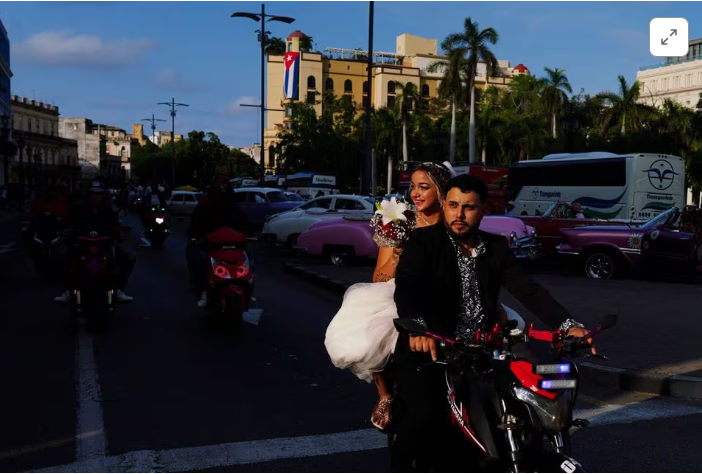HAVANA, Dec 29 (Reuters) – Wedding processions on wheels are nothing new along Havana’s famous seafront drive, the Malecon, but this week electric bikes and scooters joined a tradition that in the past has included horse-drawn carriages and vintage U.S. cars.
The procession for one couple on Wednesday was a sign of the times in Communist-run Cuba as people get resourceful amid an economic crisis that has all but paralyzed public transport, sent taxi prices through the roof and led to long lines to buy gasoline.
The bride, 21-year-old Daniley Aguiar, said the couple were big fans of the electric cars, called “motos”, and so the unique procession was “something I always wanted to do.”
Her groom, Reinier López, 27, said putting together a wedding on a budget was not easy given the daily difficulties of shortages, inflation and deteriorating services.
Electric two-wheelers have taken off with a buzz in recent years on the island, with help from the government.
Imported vehicles are highly taxed, with the exception of electric motorcycles, scooters, mopeds and bicycles and the government has a joint venture to assemble them in country with China’s Tianjin Motor Dies Co Ltd.
The government reported around 100,000 electric two-wheelers were on the road at the start of 2023, compared to just a few five years ago.
While a new car costs tens of thousands of dollars, a bike is a few thousand dollars. Most of Cuba’s 11 million people make the equivalent of just a few thousand dollars per year, with some 40% supplementing that with remittances from abroad.
Alfredo Rodríguez, 50, and a member of the BigCuba Electric Motorcycle Association, said these days “it is sometimes impossible to find transportation.”
Motos are big relief, he said, as the rider “simply charges it up at home and it takes you where you need to go.”
